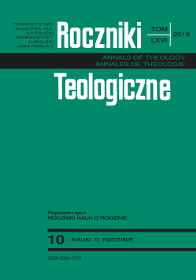Features of University Students’ Self-attitude in the Context of Self-determination of Personal Development
Features of University Students’ Self-attitude in the Context of Self-determination of Personal Development
Author(s): Iryna Iavorska-VietrovaSubject(s): Social Sciences, Psychology, Developmental Psychology, Personality Psychology
Published by: Towarzystwo Naukowe KUL & Katolicki Uniwersytet Lubelski Jana Pawła II
Keywords: personality; self-determination; self-attitude; general self-attitude; auto-sympathy; self-respect; self-interest; self-assurance; self-blaming; self-understanding
Summary/Abstract: The article analyzes peculiarities of students’ self-attitudes in the context of self-determination of their personal development. Self-attitude is defined as a poly-modal emotional-estimative system based on the principle of a dynamic hierarchy and acting as one of the structural units of a person’s dispositional core and a component of the structure of self-consciousness. Self-attitude expresses peculiarities of an individual’s attitude to oneself and provides centring of one’s inner space and formation of the semantic vector of one’s life path. Positive self-attitude along with personal aspirations and prospects, personal autonomy, self-efficacy is an indicator of a self-determined individual. The used questionnaire on self-attitude developed by V.V. Stolin, S.R. Pantileev allowed us to identify three levels of self-attitude according to the degree of its generalization: general self-attitude; self-attitude differentiated by self-regard, auto-sympathy, self-interest and expected attitude of others; the level of concrete actions (readiness for them) regarding Self. The analyses of students’ self-attitude has shown that the respondents are characterized by high indicators of general self-attitude and high and average lower-level indicators. The students with high and low self-determination have different expressiveness of the self-attitude components.
Journal: Roczniki Teologiczne
- Issue Year: 66/2019
- Issue No: 10
- Page Range: 191-202
- Page Count: 12
- Language: English

